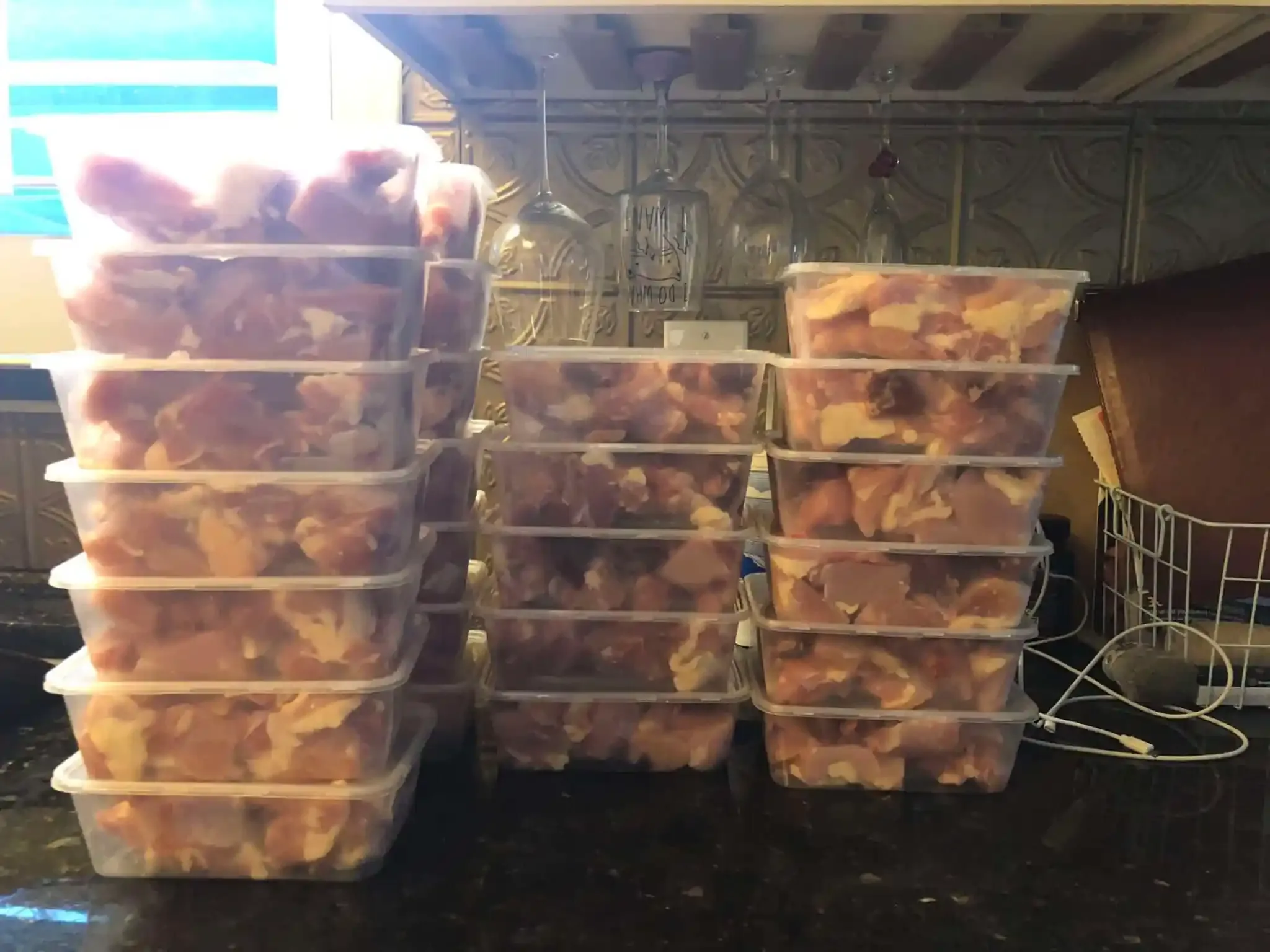If you’re a Maine Coon owner or soon-to-be parent to one of these majestic giants, you’ve likely wondered: what’s the best food for Maine Coon cats? These fluffy behemoths need nutrition that supports their massive size, energy, and luxurious coats—not just any cat chow will do.
As a dedicated Maine Coon breeder with years of hands-on experience, I’ve tested raw diets, premium kibbles, and everything in between. There’s no universal “perfect” food, but I’ll share what worked (and what didn’t) for my cats, backed by observing their health, digestion, and happiness. Let’s cut through the hype and get to practical advice tailored for Maine Coon nutrition.
Do Your Research Before Picking Maine Coon Cat Food
I’m not a vet or nutritionist—just a breeder who’s raised dozens of healthy Maine Coons since 2017. My insights come from trial, error, and what keeps my cats thriving alongside my busy lifestyle.
Start by scrutinizing labels: Prioritize real meat as the top ingredients, skip fillers like corn, wheat, or soy since cats are obligate carnivores. Factor in your budget, storage needs, and your cat’s response—shiny coat, steady energy, firm stools? That’s the gold standard.
For deeper dives into specific formulas, check ingredient breakdowns and health impacts. For instance, if managing weight or sensitivities, options like low carb cat food diabetes can offer targeted support.
Raw Diet for Maine Coons: Pros, Cons, and My Reality Check
Maine Coons descend from hardy hunters, so a raw diet seemed like a natural fit—prey-like meals mimicking their wild ancestors. I bulked up with 40 pounds of chicken thighs, plus liver, hearts, and bone meal, portioned for my crew.
In theory, it’s species-appropriate: high moisture, enzymes, and nutrients for optimal Maine Coon health. But practice? A nightmare for me.
- Time sink: Grinding, portioning, and rotating proteins ate hours weekly.
- Space hog: Extra freezer real estate for bulk raw.
- Mess factor: Cats scatter bits everywhere—cleanup was endless.
- Hygiene worries: Raw meat handling grossed me out, and bones made me nervous despite their natural crunching instinct.
After months, I bailed. Raw shines for dedicated folks with time, but it clashed with my routine. Many Maine Coons do great on it, though—observe yours closely.
 raw diet for Maine Coon
raw diet for Maine Coon
Kibble Trials: What Didn’t Work for My Maine Coons
Switching to dry kibble brought convenience—no more slime or sprawl. But quality varies wildly; cheap stuff leads to issues.
First up: Taste of the Wild Rocky Mountain Feline, grain-free and breeder-endorsed. Results? Eye-watering poop odors that cleared rooms and frequent vomiting. After a year, we moved on—my cats’ stomachs rebelled.
Next: Blue Buffalo Wilderness, another grain-free pick. It promised wilderness vibes, but recalls for contamination shook my trust. Pets fell ill across reports, so I ditched it fast. Curious about its profile? See details on blue buffalo cat food calories per cup.
Lesson: Even “premium” kibble can flop. Monitor for digestive upset, allergies, or lethargy.
My Winning Combo: What I Feed Maine Coons Now
Trial over, I recalled my 14.5-year-old Himalayan thriving lifelong on Purina Pro Plan. Testing it on Maine Coons? Game-changer.
They’ve rocked Purina One Tender Selects dry kibble mixed with Evanger’s Limited Ingredient canned for over three years:
- Glossy, dense coats from quality proteins.
- Boundless energy for play marathons.
- Zero vomiting or loose stools.
- They devour it—picky eaters approve.
This duo balances affordability, availability, and results. Daily mix of wet and dry keeps hydration up and variety in.
Nutrition for Maine Coon Kittens: Transition Tips
My kittens start solids at 4-5 weeks with Purina One Healthy Kitten kibble plus Evanger’s wet. By adoption (8-12 weeks), they’re pros at both, easing new owners’ transitions.
Kittens grow fast—free-feed dry, supplement wet 1-2x daily. Their Maine Coon diet fuels that signature size without overload.
 what should i feed my maine coon
what should i feed my maine coon
Feeding Guidelines: How Much for Maine Coons?
These giants out-eat average cats. Adults need ~20 calories per pound of body weight daily—adjust for activity.
- Kittens: Unlimited kibble access; they self-regulate growth spurts.
- Adults: Measured portions to prevent obesity, common in large breeds.
Weigh monthly, tweak as needed. For specialized health like renal support, explore prescription kidney cat food.
Final Thoughts on the Best Maine Coon Cat Food
The best food for Maine Coon cats? Whatever fuels health, fits your life, and passes the thrive test. Prioritize meat-first formulas, track vitals like coat quality and poo consistency, and ignore diet dogma—raw purists or kibble snobs included.
Consult your vet for personalized tweaks, especially for seniors or special needs. Your Maine Coon deserves vibrancy; consistent, high-protein nutrition delivers it.
What’s your go-to Maine Coon diet? Share in comments—we learn from each other! Explore more cat care tips on our site.
